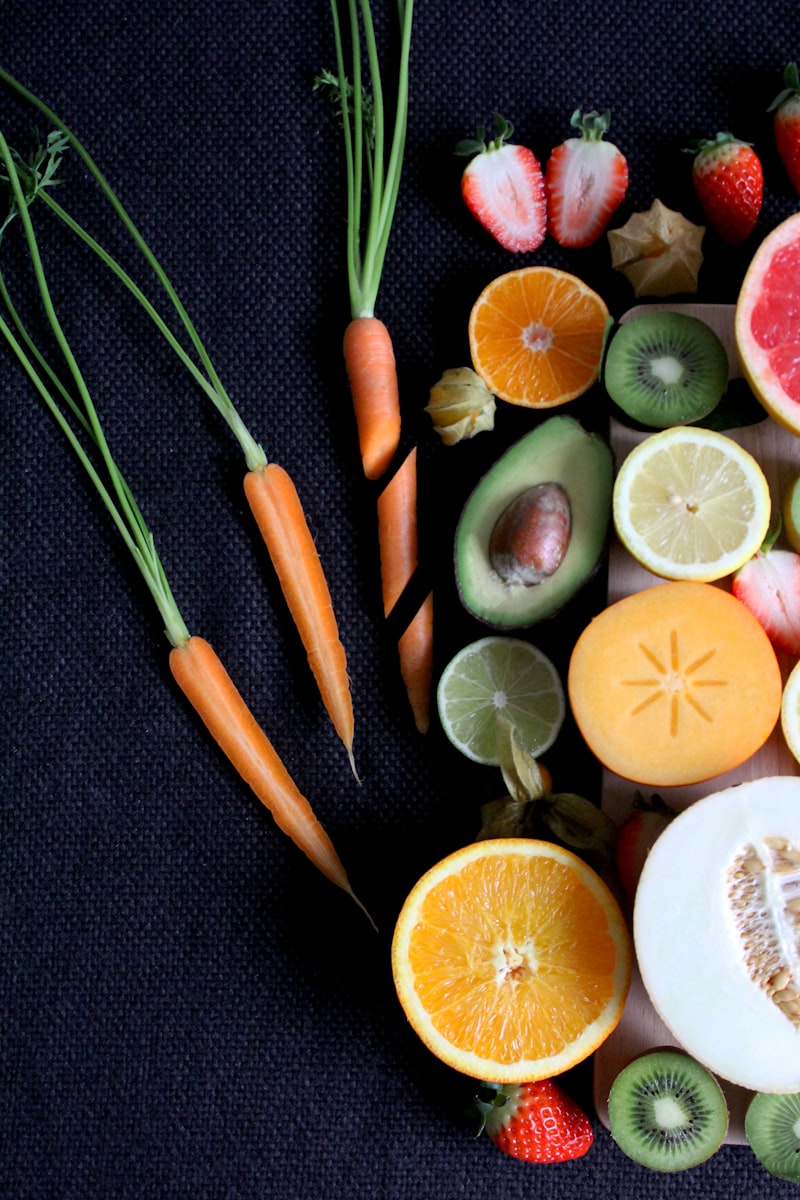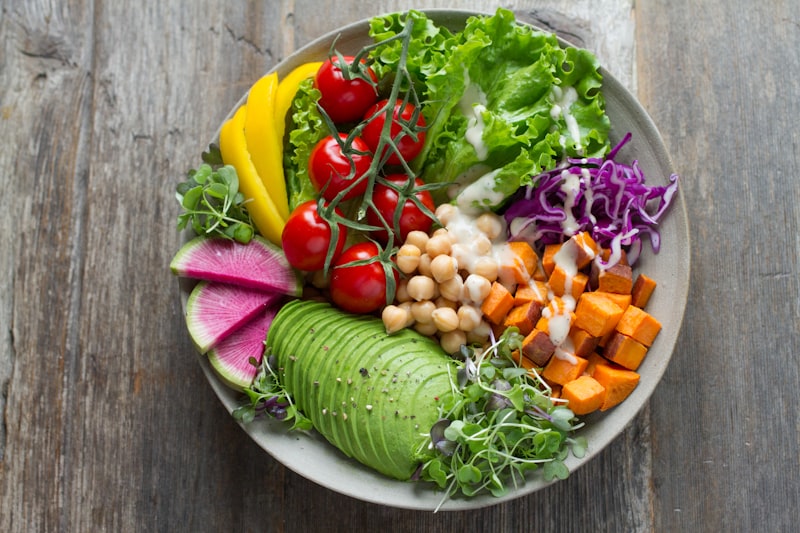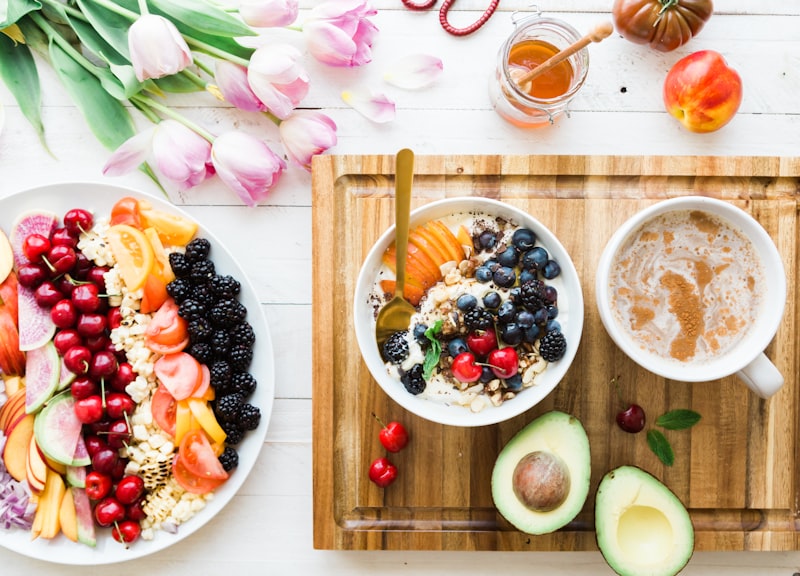Maintaining optimal health as we age is a journey that begins with what we put on our plates. Nutrition plays a pivotal role in how we age gracefully and maintain vitality throughout our lives. It’s not just about counting calories; it’s about nourishing our bodies with the right nutrients to support longevity and well-being.
A balanced diet rich in essential vitamins, minerals, and antioxidants is key to promoting healthy aging. Foods such as leafy greens, berries, fatty fish, nuts, and whole grains are packed with nutrients that help combat age-related issues like inflammation and cognitive decline. These ingredients act like a shield, protecting our cells from damage and ensuring our organs function optimally.

Protein intake becomes increasingly important as we age, aiding in muscle maintenance and overall strength. Lean meats, legumes, and dairy products are excellent sources of protein that can help seniors maintain their mobility and independence.
Hydration is another critical aspect often overlooked in healthy aging. As we get older, our sense of thirst diminishes, making it easy to become dehydrated without realizing it. Drinking plenty of water and consuming hydrating foods like fruits and vegetables can help maintain proper bodily functions and skin elasticity.
Beyond physical health, nutrition impacts mental acuity and emotional well-being. Omega-3 fatty acids found in fish oils, for example, are known to support brain health, potentially reducing the risk of cognitive decline and depression.
In essence, what we eat profoundly impacts how we age. By making mindful choices and embracing a diet rich in nutrients, seniors can enhance their quality of life and enjoy their golden years with vigor and vitality.
The Key to Longevity: How Nutrition Impacts Aging
Ever wondered what truly keeps us youthful and energized as we age? It turns out, the answer might lie right on our plates. Nutrition plays a pivotal role in our longevity, influencing not just how long we live, but how well we live each day. Let’s delve into how the food choices we make impact the aging process.
Firstly, think of your body as a finely tuned machine. Just like a car needs the right fuel to run smoothly and efficiently, our bodies require proper nutrition to function at their best. Foods rich in antioxidants, vitamins, and minerals act as the building blocks for cellular repair and maintenance. They help combat oxidative stress, a major driver of aging, by neutralizing free radicals that can damage cells and DNA.
Moreover, a balanced diet contributes to overall health in ways beyond skin-deep. For instance, Omega-3 fatty acids found in fish and nuts are known to support heart health and cognitive function, reducing the risk of cardiovascular diseases and cognitive decline as we age. Similarly, adequate protein intake supports muscle strength and bone density, crucial for maintaining mobility and independence in later years.
But it’s not just about what we eat; when we eat matters too. Emerging research suggests that intermittent fasting or time-restricted eating can enhance cellular repair processes and promote longevity by improving metabolic health and reducing inflammation. This approach isn’t just a trend but a scientifically-backed strategy to optimize how our bodies age.
In essence, the key takeaway is clear: making informed dietary choices isn’t just about shedding pounds or gaining muscle—it’s about investing in our long-term health and vitality. By embracing a diet rich in whole foods, lean proteins, healthy fats, and plenty of fruits and vegetables, we empower ourselves to age gracefully and enjoy a higher quality of life well into our golden years.
So, next time you sit down for a meal, think beyond the immediate satisfaction of taste—think about the nourishment your choices provide for a future full of energy, vitality, and well-being.
Fueling Your Golden Years: Essential Nutrients for Healthy Aging
As we journey through life, our nutritional needs evolve, especially as we enter our golden years. Ensuring a vibrant and healthy lifestyle during this phase requires a focus on essential nutrients that support overall well-being and longevity. Let’s delve into the key nutrients crucial for maintaining health as we age gracefully.
First and foremost, protein plays a pivotal role in preserving muscle mass and strength. As we get older, our bodies become less efficient at utilizing dietary protein, making it imperative to incorporate sufficient amounts into our diets. Lean meats, fish, eggs, legumes, and dairy products are excellent sources of protein that can help combat age-related muscle loss and maintain optimal physical function.
Omega-3 fatty acids, renowned for their anti-inflammatory properties, are another vital component of a healthy aging diet. Found abundantly in fatty fish such as salmon, mackerel, and sardines, as well as in walnuts and flaxseeds, omega-3s support heart health, cognitive function, and joint flexibility. Including these foods regularly can contribute to reducing the risk of chronic diseases associated with aging.
Antioxidants, such as vitamins C and E, and beta-carotene, are essential for combating oxidative stress and cellular damage caused by free radicals. These nutrients are found in colorful fruits and vegetables like berries, citrus fruits, spinach, and bell peppers. By incorporating a variety of antioxidant-rich foods into your diet, you can help protect against age-related decline and maintain youthful vitality.
Calcium and vitamin D are crucial for maintaining bone health and reducing the risk of osteoporosis, a common concern as we age. Dairy products, fortified plant-based milks, leafy greens like kale and collard greens, and sunlight exposure are excellent sources of these nutrients. Ensuring an adequate intake supports strong bones and overall mobility.
Lastly, hydration is often overlooked but essential for overall health, especially as we age. Drinking an ample amount of water throughout the day supports digestion, circulation, and cognitive function. Herbal teas and fruits like watermelon and cucumber also contribute to hydration while providing additional nutrients.
By prioritizing these essential nutrients in your diet, you can support healthy aging and enjoy a fulfilling lifestyle well into your golden years. Embrace these dietary choices as part of a holistic approach to aging gracefully and maintaining vitality.
Secrets of Centenarians: What They Eat for Lifelong Health
Firstly, centenarians often adhere to a diet rich in whole, unprocessed foods. They prioritize fresh fruits and vegetables, whole grains, and lean proteins. This diet provides essential nutrients like vitamins, minerals, and antioxidants, which support overall health and immune function.
Moreover, centenarians frequently incorporate plant-based foods into their meals. Plants such as legumes, nuts, seeds, and olive oil are staples known for their heart-healthy benefits and anti-inflammatory properties. These foods help maintain cholesterol levels and reduce the risk of chronic diseases like heart disease and diabetes.
Interestingly, many centenarians consume fish regularly, particularly varieties rich in omega-3 fatty acids such as salmon and sardines. Omega-3s are renowned for their role in supporting brain health and reducing inflammation throughout the body.
Furthermore, moderation is a common theme in centenarian diets. They tend to eat smaller portions, ensuring they maintain a healthy weight and avoid overeating. This habit not only supports physical health but also contributes to longevity by reducing the strain on the body’s systems.
In addition to specific foods, centenarians often have cultural dietary practices that emphasize social interaction and enjoyment of meals. Eating meals with family and friends fosters a sense of community and reduces stress, which are crucial elements in maintaining overall well-being.

Overall, the diet of centenarians reflects a balanced approach that combines nutrient-rich foods, moderation, and social aspects of eating. By adopting similar principles, individuals can potentially enhance their chances of living a long and healthy life. Understanding these dietary habits offers valuable insights into longevity and inspires others to make positive choices for their own health and well-being.
Nutritional Strategies to Boost Brain Health as You Age
As we age, maintaining optimal brain health becomes increasingly important. Fortunately, there are effective nutritional strategies that can support cognitive function and overall brain health. One of the key nutrients essential for brain health is omega-3 fatty acids, found abundantly in fatty fish like salmon, trout, and sardines. These fatty acids are crucial for brain cell structure and function, helping to support memory and learning abilities.

Antioxidants, such as vitamin E and vitamin C, play a vital role in protecting brain cells from oxidative stress. Berries, nuts, and leafy greens are rich sources of these antioxidants, making them excellent choices for brain-boosting snacks or additions to meals.
Incorporating whole grains into your diet provides a steady supply of glucose, the brain’s main energy source. Opt for whole wheat bread, brown rice, and oats to support optimal brain function throughout the day.
Another powerful nutrient is curcumin, a compound found in turmeric. Curcumin has anti-inflammatory and antioxidant properties that may enhance memory and mood, making it a valuable addition to your diet.
Maintaining adequate hydration is also crucial for brain health. Even mild dehydration can impair cognitive function and mood. Aim to drink plenty of water throughout the day to keep your brain functioning at its best.
Lastly, a balanced diet that includes a variety of fruits, vegetables, lean proteins, and healthy fats provides the essential nutrients your brain needs to stay sharp as you age. By adopting these nutritional strategies, you can support cognitive function, memory, and overall brain health well into your senior years.
From Kale to Omega-3s: Superfoods That Promote Healthy Aging
When it comes to aging gracefully, what you put on your plate can make a significant difference. Incorporating superfoods rich in nutrients can be a game-changer for maintaining vitality and overall well-being as we grow older. From kale to omega-3s, these powerhouse foods pack a punch in terms of health benefits.
Kale, often hailed as the king of leafy greens, is not just a trendy vegetable for salads. It’s loaded with antioxidants like vitamin C and beta-carotene, which help combat oxidative stress that contributes to aging. What’s more, kale is a fantastic source of vitamin K, crucial for bone health, and fiber, aiding digestion—a true multitasker on your plate.
Berries, such as blueberries and strawberries, aren’t just delicious; they’re also rich in antioxidants called flavonoids. These compounds have been shown to improve cognitive function and protect against age-related decline. Incorporating a handful of these vibrant treats into your daily routine can be a sweet way to support your brain health.
For those looking to boost their heart health and cognitive function, omega-3 fatty acids are a must. Found abundantly in fatty fish like salmon, mackerel, and sardines, omega-3s are renowned for their anti-inflammatory properties, promoting cardiovascular well-being and potentially reducing the risk of cognitive decline.
Nuts, particularly walnuts and almonds, are another fantastic addition to your anti-aging arsenal. Packed with healthy fats, vitamins, and minerals, nuts offer a convenient snack that supports heart health and provides essential nutrients like vitamin E, which helps protect cells from oxidative damage.
And let’s not forget about legumes! Beans, lentils, and chickpeas are excellent sources of plant-based protein, fiber, and essential minerals like iron and folate. These nutrients play crucial roles in maintaining energy levels, supporting muscle function, and promoting overall vitality as we age.
Incorporating these superfoods into your diet doesn’t have to be complicated. Whether you’re tossing kale into a morning smoothie, snacking on a handful of nuts, or enjoying a piece of grilled salmon for dinner, these small dietary changes can have a big impact on your long-term health and well-being.
Ready to embrace the power of superfoods for healthy aging? Start small, stay consistent, and savor the benefits of feeling your best at every stage of life.
Beyond Calories: How Nutrient-Dense Foods Support Aging Well
Have you ever considered that what you eat could be your secret weapon for aging gracefully? Beyond just counting calories, the concept of nutrient-density in foods is gaining attention for its profound impact on overall health, especially as we age.
Nutrient-dense foods pack a powerful punch in a small package. They are rich in essential vitamins, minerals, antioxidants, and other beneficial compounds that our bodies need to function optimally. Think of them as the superheroes of the food world, offering not just energy but also protection against the wear and tear of time.
Take leafy greens, for example. Spinach, kale, and Swiss chard are not only low in calories but also high in vitamins A, C, and K, along with minerals like iron and calcium. These nutrients play crucial roles in maintaining bone health, supporting immune function, and even reducing the risk of chronic diseases such as heart disease and diabetes.

Berries are another delicious example of nutrient-dense foods. Packed with antioxidants called polyphenols, berries like blueberries, strawberries, and raspberries help combat oxidative stress, a key contributor to aging. These little gems not only satisfy your sweet tooth but also support cognitive function and skin health.
Fish rich in omega-3 fatty acids, such as salmon and sardines, are vital for brain health and heart function. These healthy fats not only provide energy but also reduce inflammation and support cardiovascular health, helping you stay active and vibrant as you age.

Incorporating nutrient-dense foods into your diet doesn’t have to be complicated. Aim for variety and color on your plate – the more vibrant the food, the more likely it is packed with essential nutrients. Whether it’s adding a handful of nuts to your morning yogurt or swapping refined grains for whole grains, small changes can make a big difference in how you feel and age.
Remember, aging well isn’t just about the passage of time; it’s about nurturing your body with the right fuel. By focusing on nutrient-dense foods, you’re not just eating – you’re investing in your long-term health and vitality.
This article emphasizes the benefits of nutrient-dense foods in supporting aging well, incorporating engaging content with a conversational tone to captivate the reader’s interest and convey the importance of dietary choices in health maintenance.
Frequently Asked Questions
What are the key nutritional needs for healthy aging?
Discover the essential nutritional needs crucial for healthy aging, ensuring vitality and well-being as you grow older. Learn about the balanced intake of vitamins, minerals, antioxidants, and protein necessary to support overall health and longevity.
How does diet affect aging?
Learn how diet impacts aging and discover strategies to support healthy aging through nutrition.
How can I maintain a balanced diet as I age?
Learn how to maintain a balanced diet as you age with practical tips on portion control, nutrient-rich foods, and hydration. Discover the importance of including fruits, vegetables, lean proteins, and whole grains in your meals to support overall health and energy levels. Explore ways to adapt your diet to meet changing nutritional needs and maintain a healthy lifestyle.
What role do vitamins and supplements play in healthy aging?
Learn about the role of vitamins and supplements in promoting healthy aging. Discover how these nutrients can support overall wellness, enhance immune function, and address common deficiencies that affect aging adults. Explore their benefits in maintaining cognitive health, bone strength, and cardiovascular well-being as you age.
What are the best foods for promoting longevity?
Discover the best foods that promote longevity with a diet rich in fruits, vegetables, whole grains, nuts, and fatty fish. These foods provide essential nutrients, antioxidants, and healthy fats, supporting overall health and longevity.



